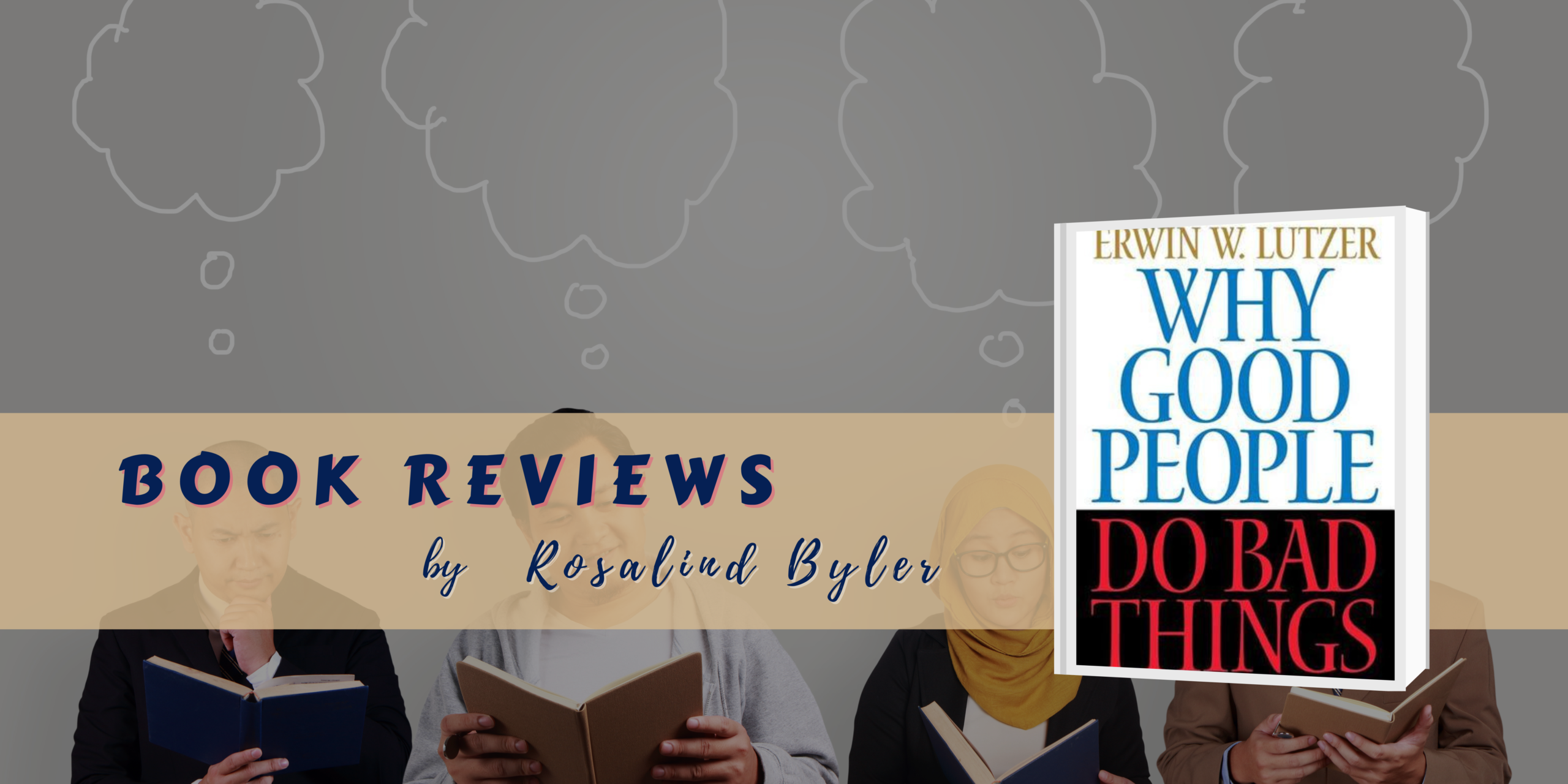Book Reviews
Why Good People Do Bad Things, by Erwin W. Lutzer | Review by Rosa Byler

Browsing through biographies of men such as Adolf Hitler or Josef Stalin, it does not surprise us to read about acts of selfishness, cruelty, and greed. That is no more than we would expect. Yet we are astonished when a neighbor we know and trust commits a crime, or when a Christian leader experiences moral failure. When we see evidences of our own capacity for evil, we are even more incredulous; and our response is frequently to excuse ourselves or to blame others. Not only are we reluctant to assess ourselves honestly, the deceitfulness of the human heart renders us actually incapable of doing so.
Why Good People Do Bad Things, by Erwin W. Lutzer, describes some of our deceptions and sins and offers hope, particularly to Christians who find themselves caught in destructive patterns of living. Lutzer makes it clear that although psychology might be able to provide some helpful analysis of certain conditions, only the Bible can correctly evaluate our motives and only God can transform us. Our level of gratitude to God for saving us from ourselves can be a hint as to how far along we are in the transformation process--and how much we may need an eye-opener such as this book!
Lutzer begins by picturing us as “lost in a house of mirrors” (p. 1); our early self-perception is largely shaped by the people around us. Though formative, their opinions are only partially correct. This problem is compounded by our soon learning to deny, consciously or unconsciously, whatever it is that we would rather not think about or to cover up what we don’t want others to see. Lutzer challenges us to self-discovery using God’s mirror, the Bible, which gives us an accurate portrait: we are deceived, but we love the deception.
What do we do when we see ourselves? We rationalize, embarking on the path that looks the easiest. We change—but only when we sense that are in trouble, not because we have seen the light. Shame results as we realize our failures, but instead of seeking God’s cure, we become paranoid, perfectionistic, or secretive. Rage distorts our perceptions and can lead to violence—and if our anger is not properly dealt with, it turns to resentment and bitterness.
People are “desire driven” (p. 119), which means that the potential for addiction is not far from any of us. Our upbringing has a significant impact on us here; the roots of addiction, Lutzer says, “almost always…lie within the home.” (p. 123) Lest we only think of gamblers, drug addicts and alcoholics as being addicted, he makes it clear that we can “escape” into much less obviously sinister pursuits in our worship of ease and pleasure.
Sometimes we seek to protect ourselves by trying to control the people and circumstances around us. A fairly lengthy chapter explores some of the expressions of this tendency, ranging from those which could be called nuisance behaviors to those that are definitely evil. Lutzer comments that “gods are notorious for wanting to rule” (137); the controller exalts himself above God in order to live life according to his own desires. Helpful Scriptural advice is given for both repenting controllers and the people who live with unrepentant ones.
The last two chapters talk about the healing power of coming to the light and the nature of conversion. Lutzer gives examples of people who acknowledged their own sinfulness or dealt with painful memories in spite of the cost, experiencing reconciliation, cleansing, and genuine progress.
Although this book has not been reprinted in recent years, it is worth obtaining a secondhand copy. A few minor slips of the pen do not detract from its value as a layman’s guide to a variety of disorders that plague us. You may see, for the first time, your own socially acceptable but sinful tendencies in their true light. You may be able to help someone else who is walking in darkness, whether through outright dishonesty or simply avoiding the distress of a long-buried secret. If you are at all interested in Biblical counseling and ministering to others, or find yourself “stuck,” this book is a good beginning.